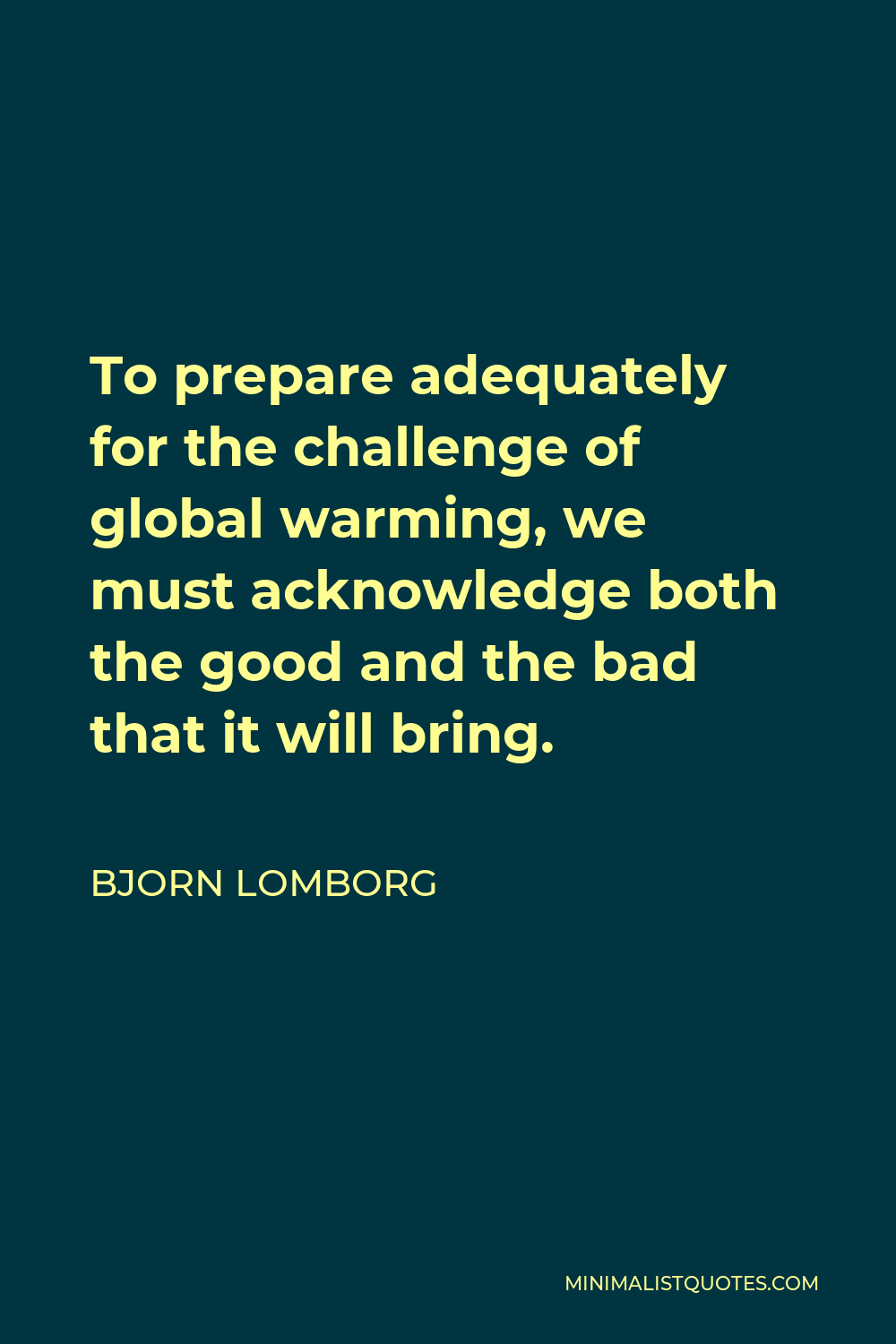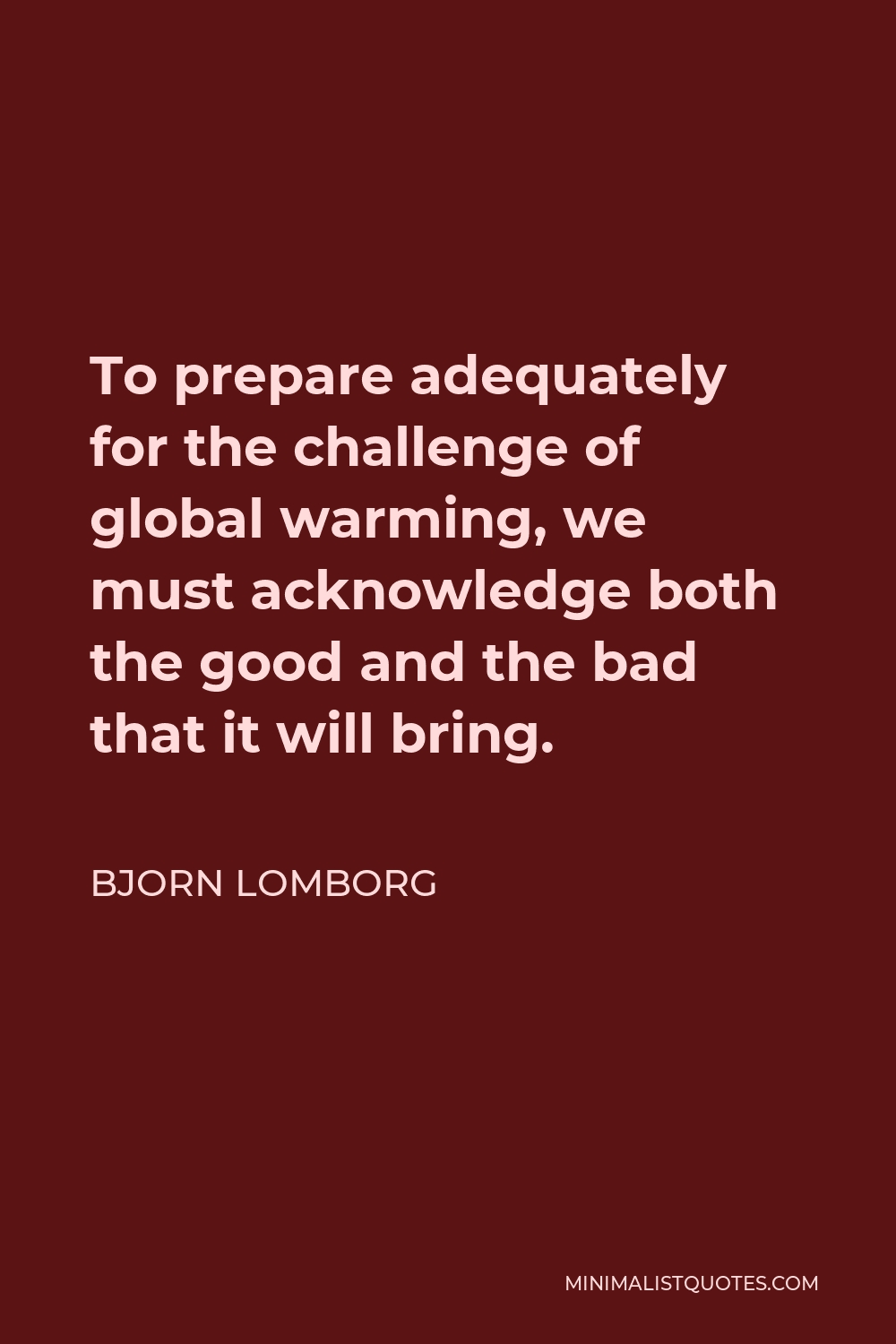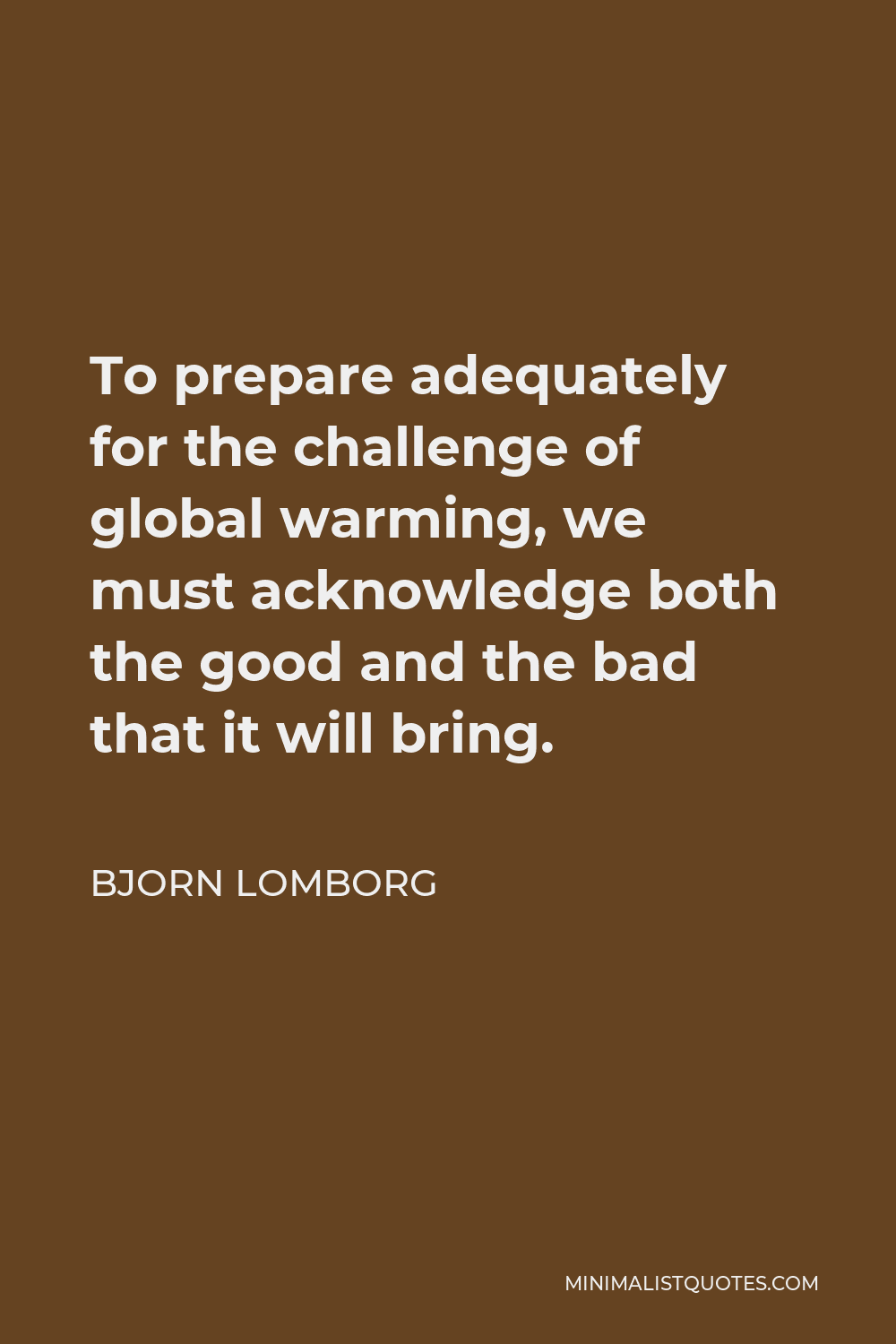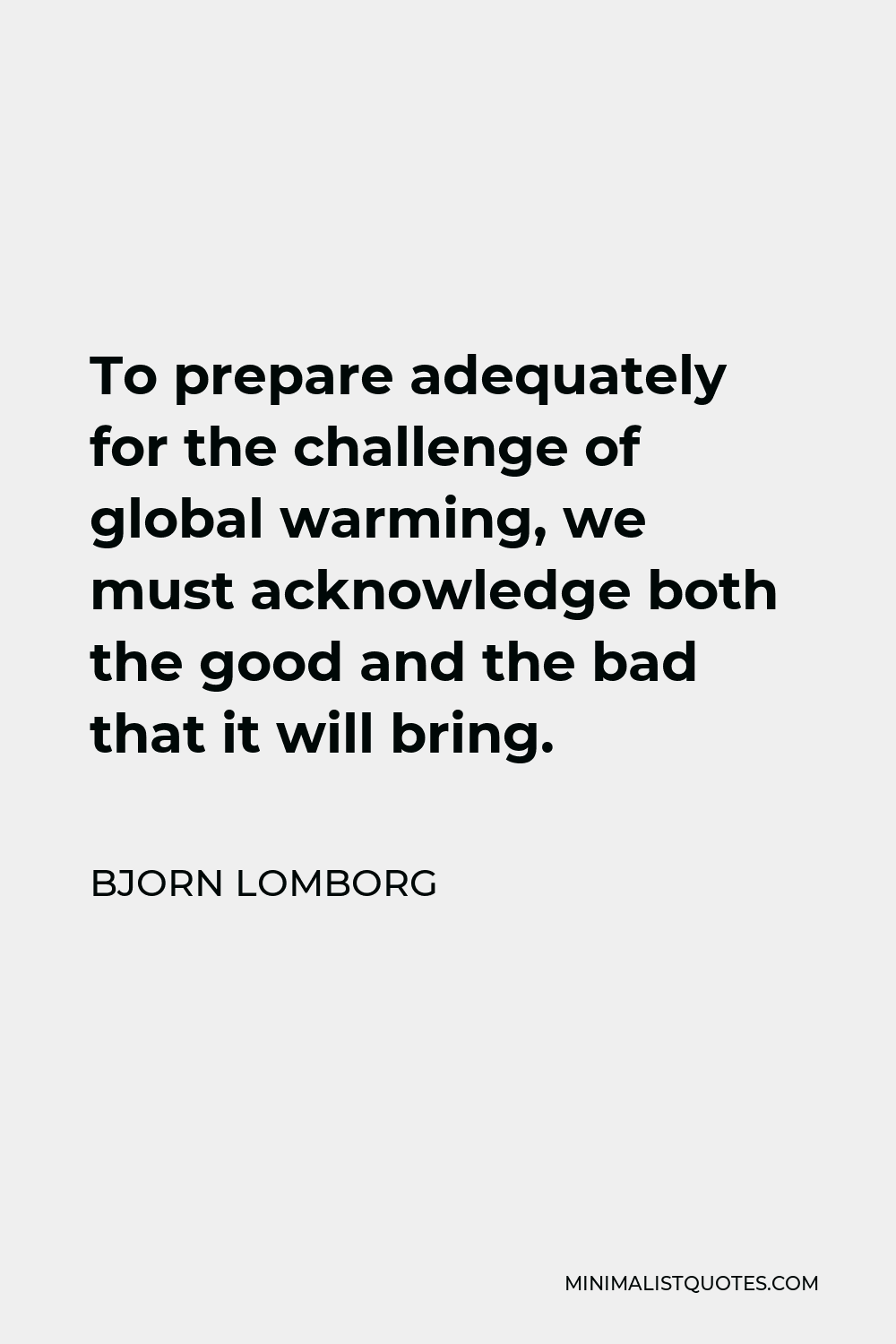We see many more, but the number is roughly constant, and we manage to deal much better with them over time. Globally, the death rate from catastrophes has dropped about fifty-fold over the past century.
BJORN LOMBORGTo prepare adequately for the challenge of global warming, we must acknowledge both the good and the bad that it will bring.
More Bjorn Lomborg Quotes
-





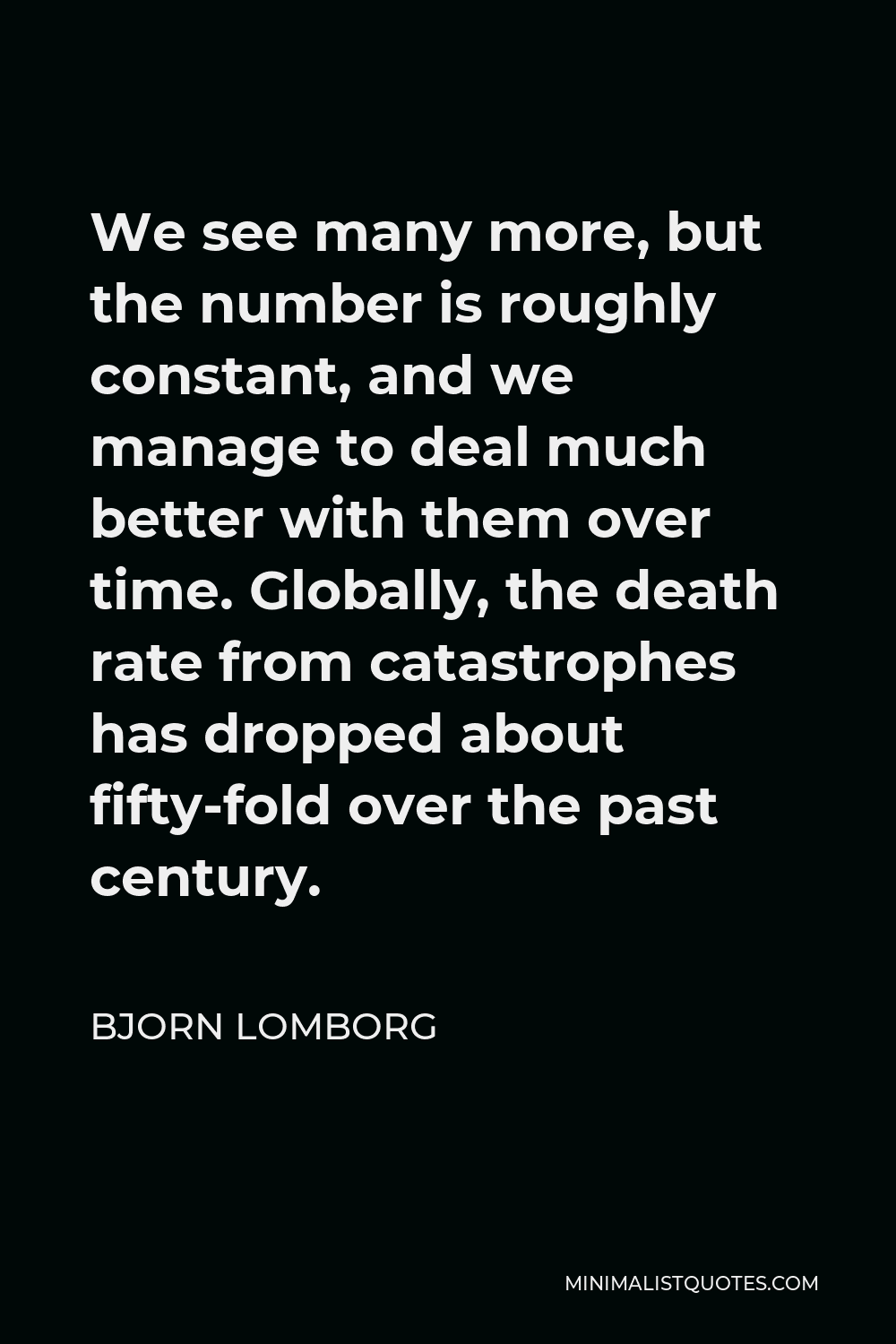
-





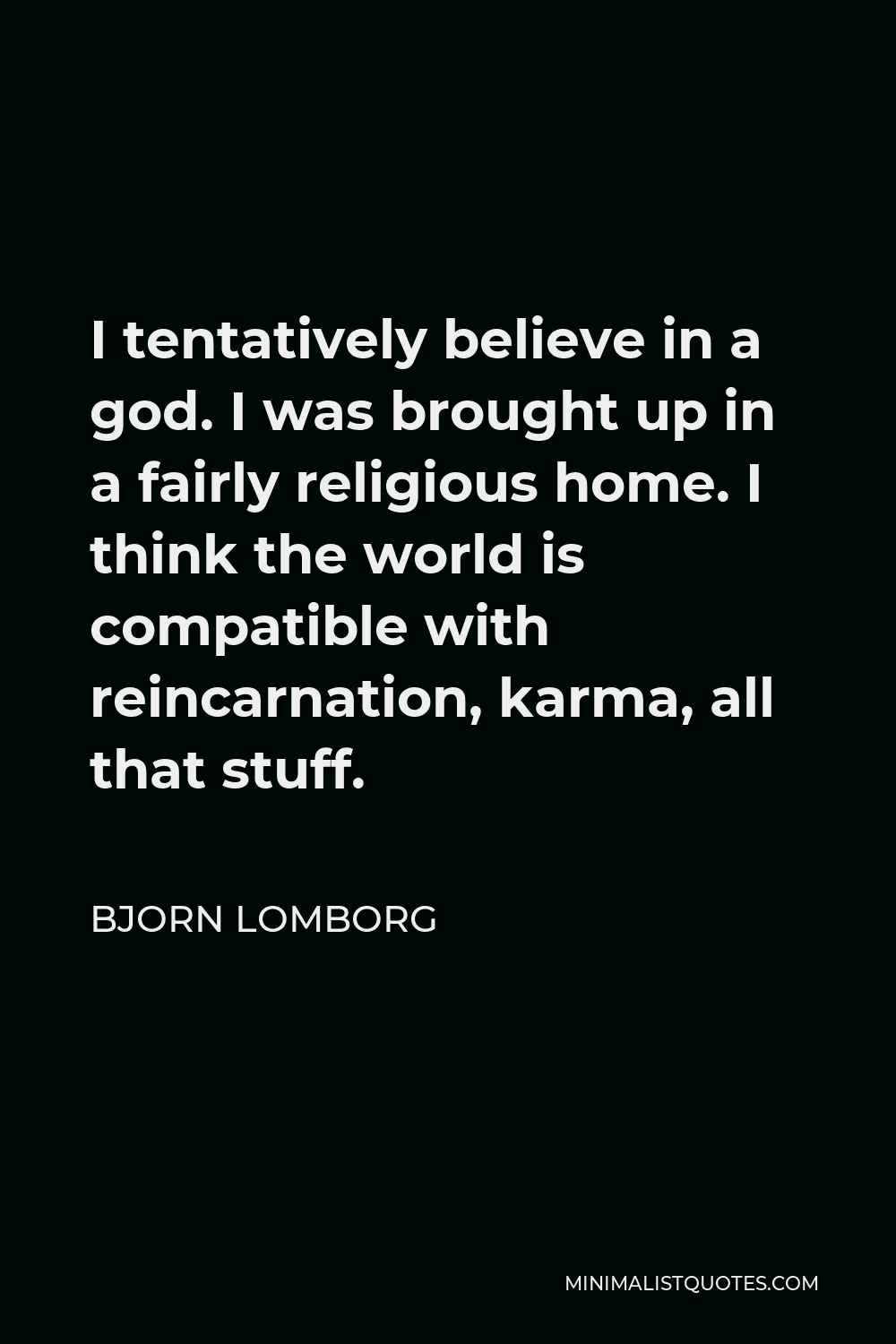
I tentatively believe in a god. I was brought up in a fairly religious home. I think the world is compatible with reincarnation, karma, all that stuff.
BJORN LOMBORG -





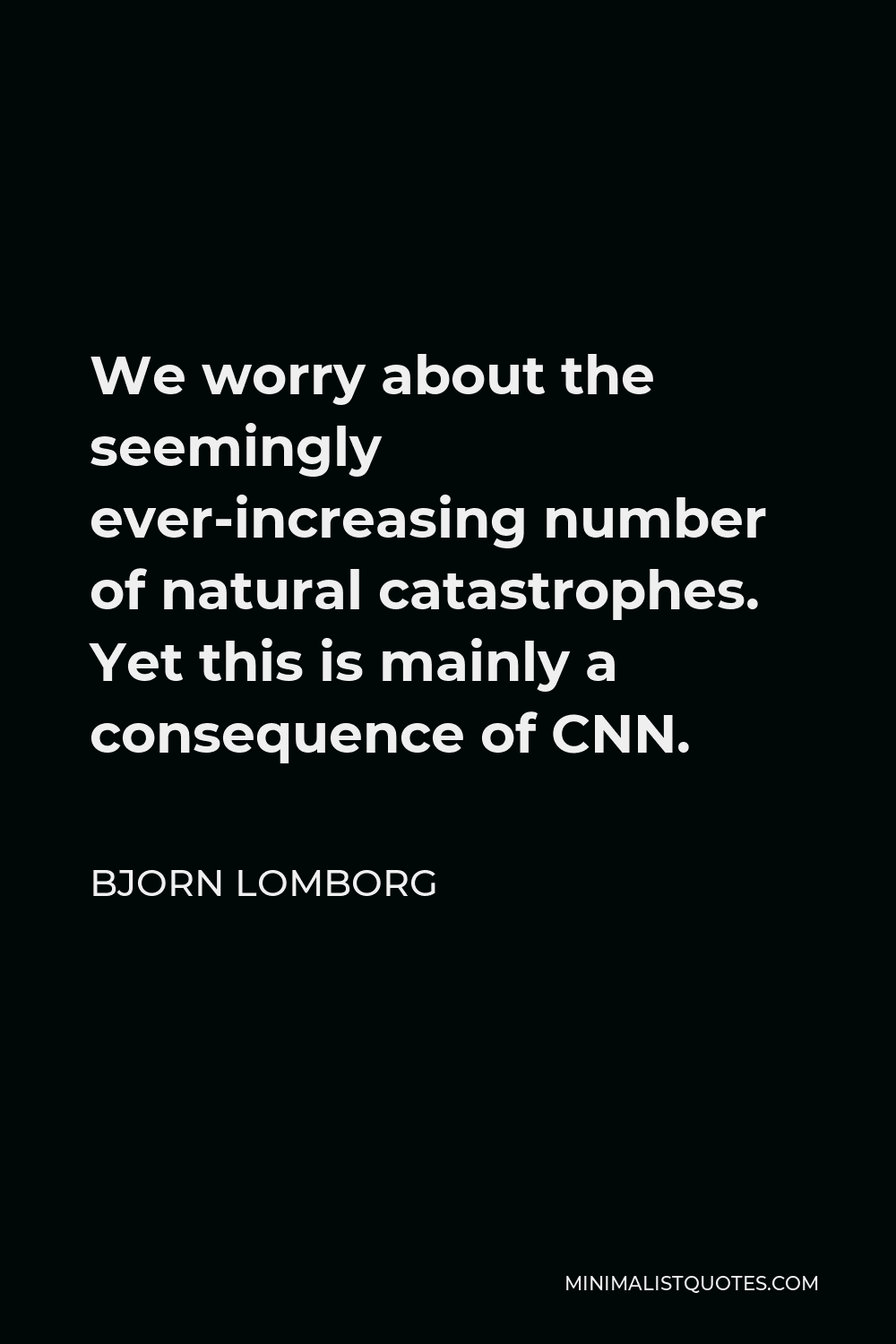
We worry about the seemingly ever-increasing number of natural catastrophes. Yet this is mainly a consequence of CNN.
BJORN LOMBORG -





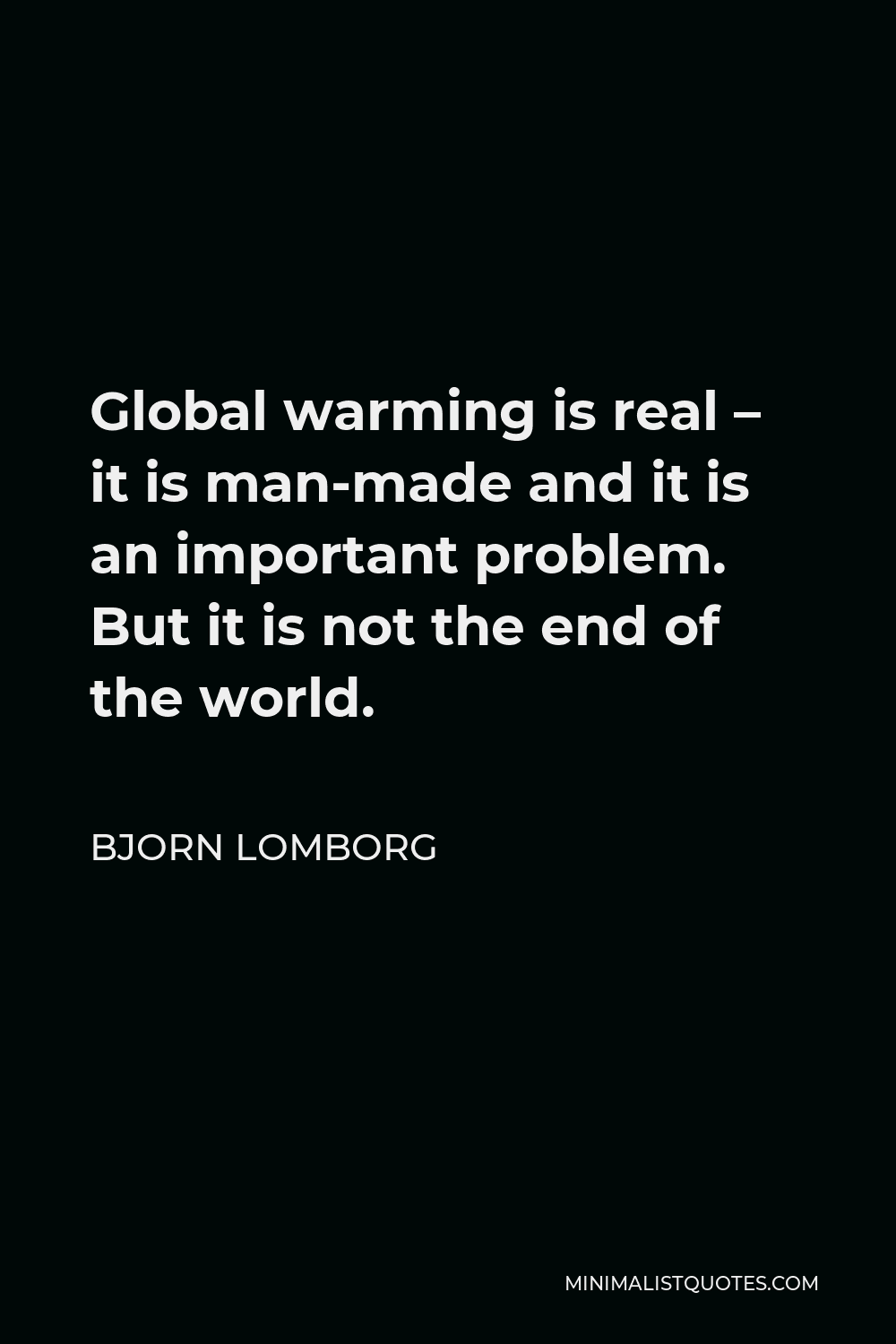
Global warming is real – it is man-made and it is an important problem. But it is not the end of the world.
BJORN LOMBORG -





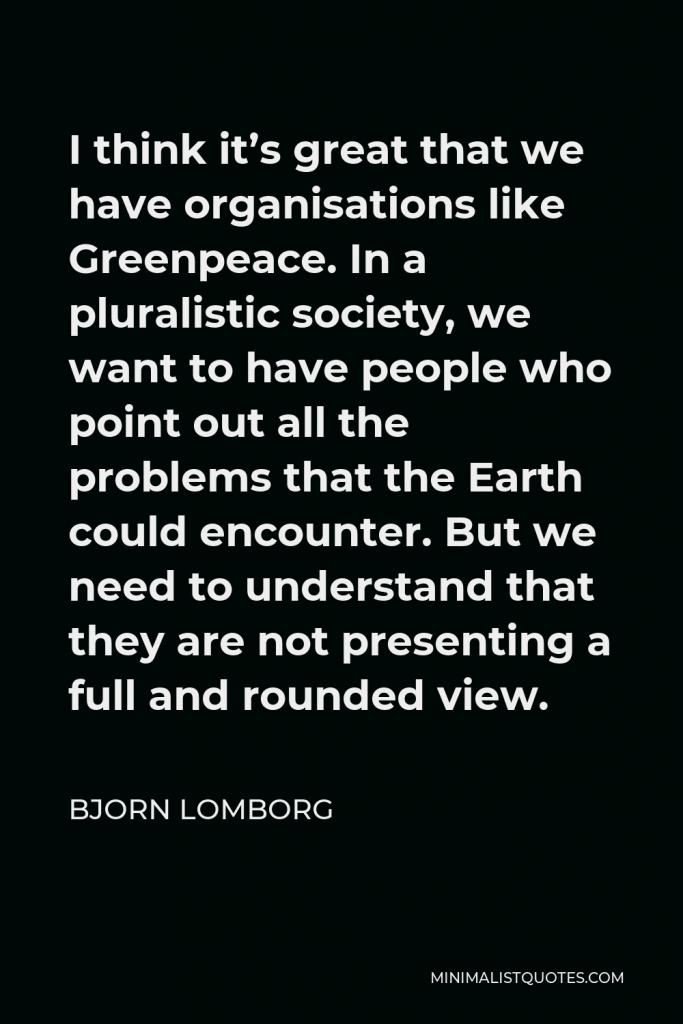

I think it’s great that we have organisations like Greenpeace. In a pluralistic society, we want to have people who point out all the problems that the Earth could encounter. But we need to understand that they are not presenting a full and rounded view.
BJORN LOMBORG -






Nobody wanted to buy a computer in 1950, but once they got cheap, everyone bought them.
BJORN LOMBORG -





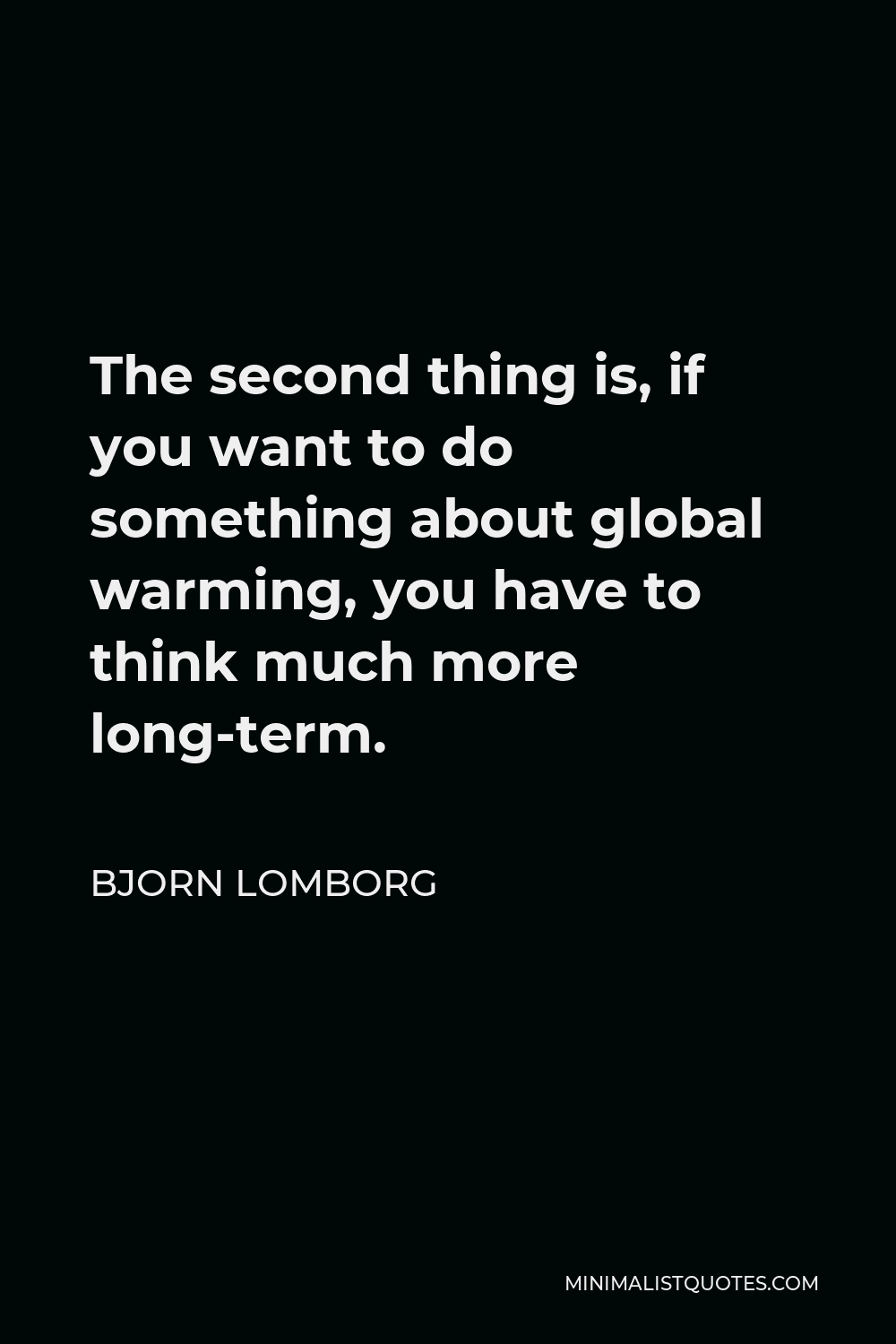
The second thing is, if you want to do something about global warming, you have to think much more long-term.
BJORN LOMBORG -





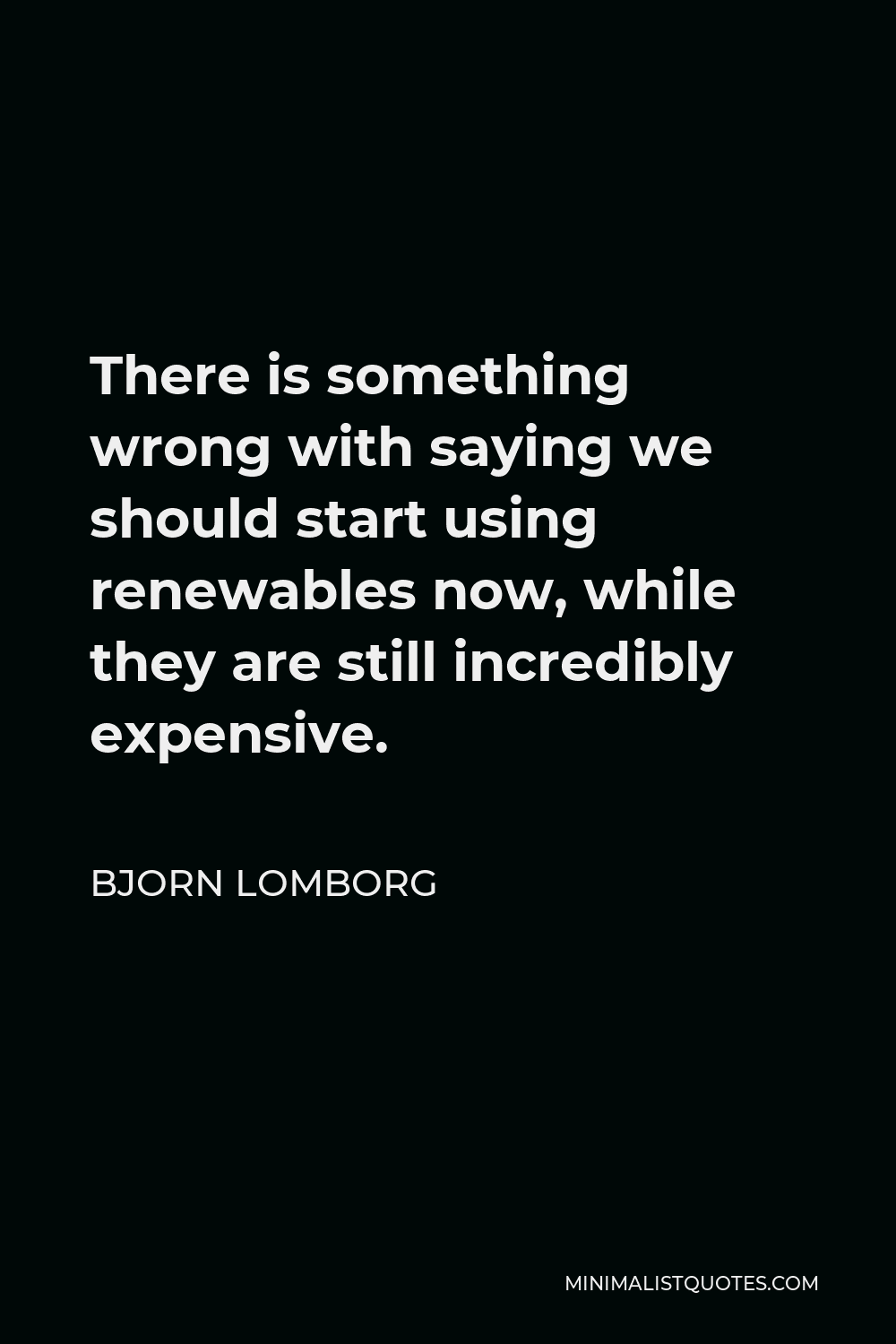
There is something wrong with saying we should start using renewables now, while they are still incredibly expensive.
BJORN LOMBORG -







There is no question that global warming will have a significant impact on already existing problems such as malaria, malnutrition, and water shortages. But this doesn’t mean the best way to solve them is to cut carbon emissions.
BJORN LOMBORG -





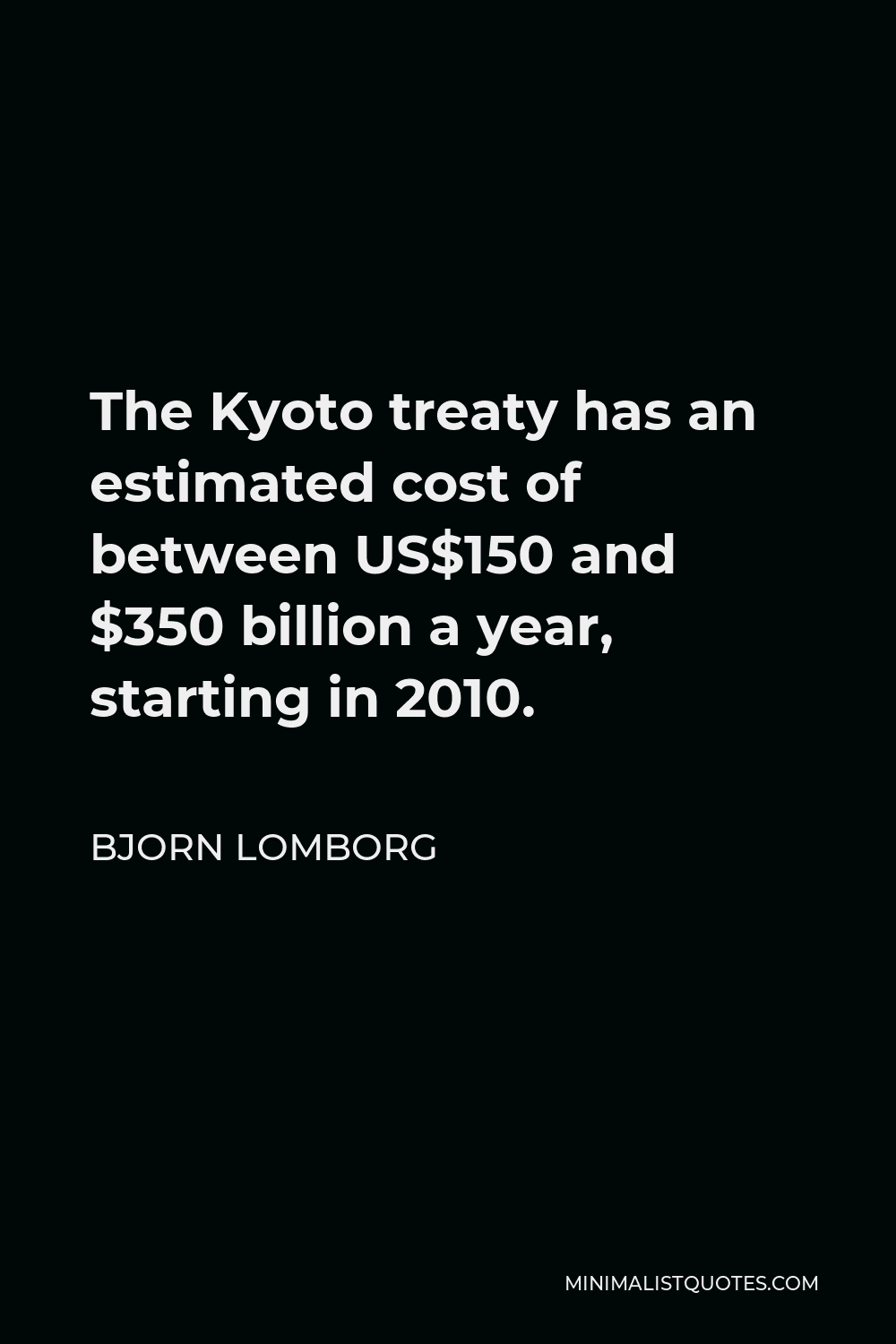
The Kyoto treaty has an estimated cost of between US$150 and $350 billion a year, starting in 2010.
BJORN LOMBORG -





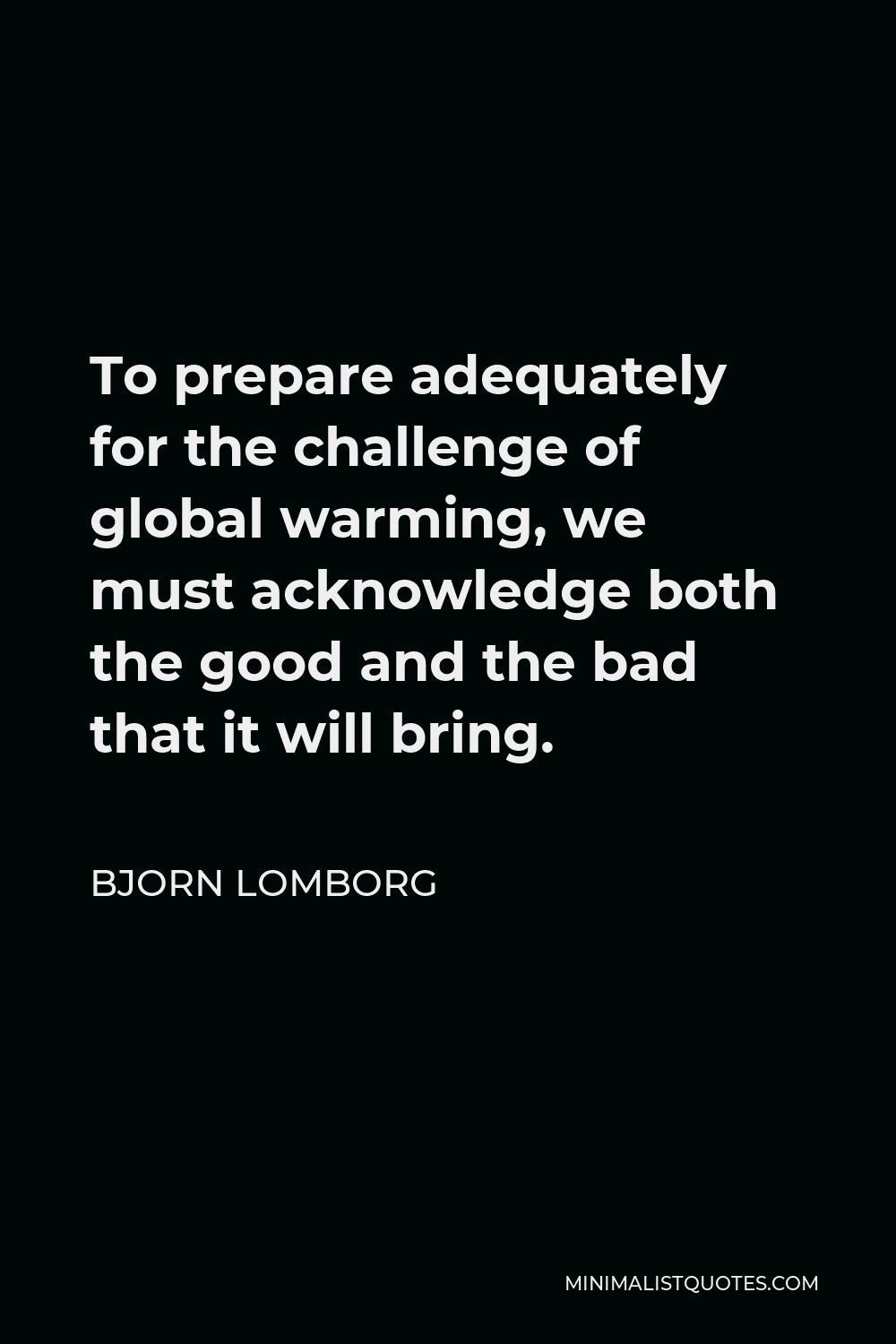
To prepare adequately for the challenge of global warming, we must acknowledge both the good and the bad that it will bring.
BJORN LOMBORG -





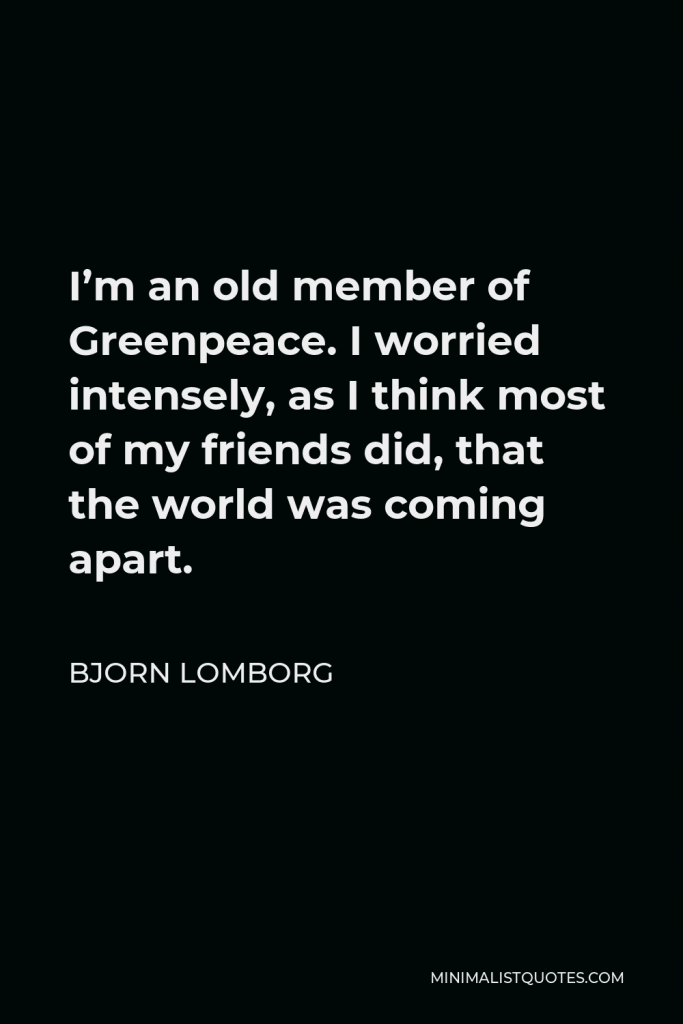

I’m an old member of Greenpeace. I worried intensely, as I think most of my friends did, that the world was coming apart.
BJORN LOMBORG -





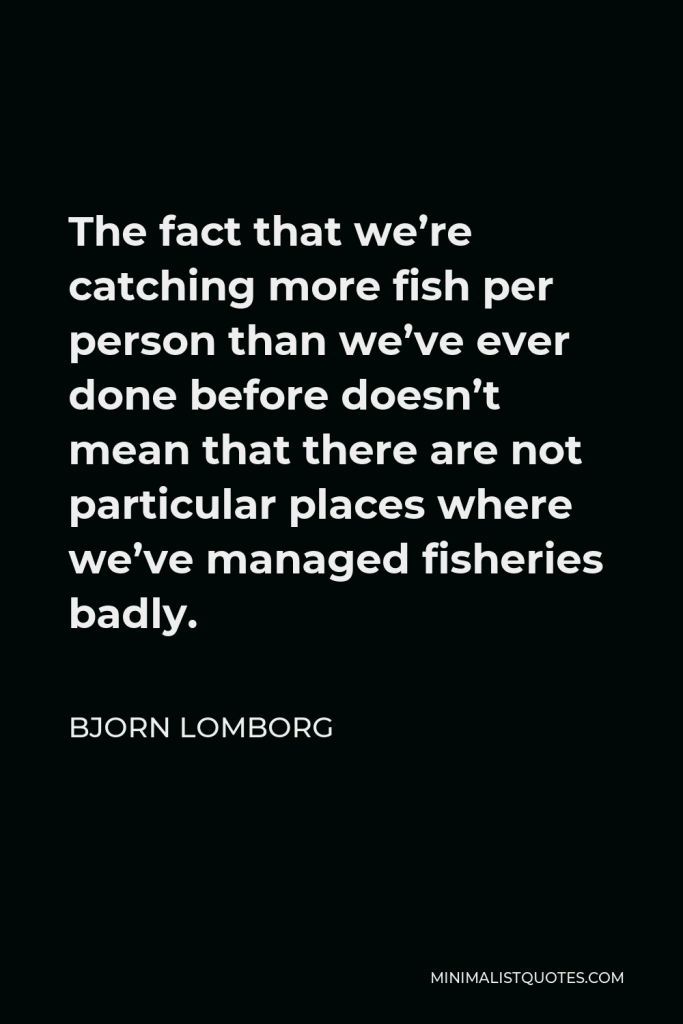

The fact that we’re catching more fish per person than we’ve ever done before doesn’t mean that there are not particular places where we’ve managed fisheries badly.
BJORN LOMBORG -





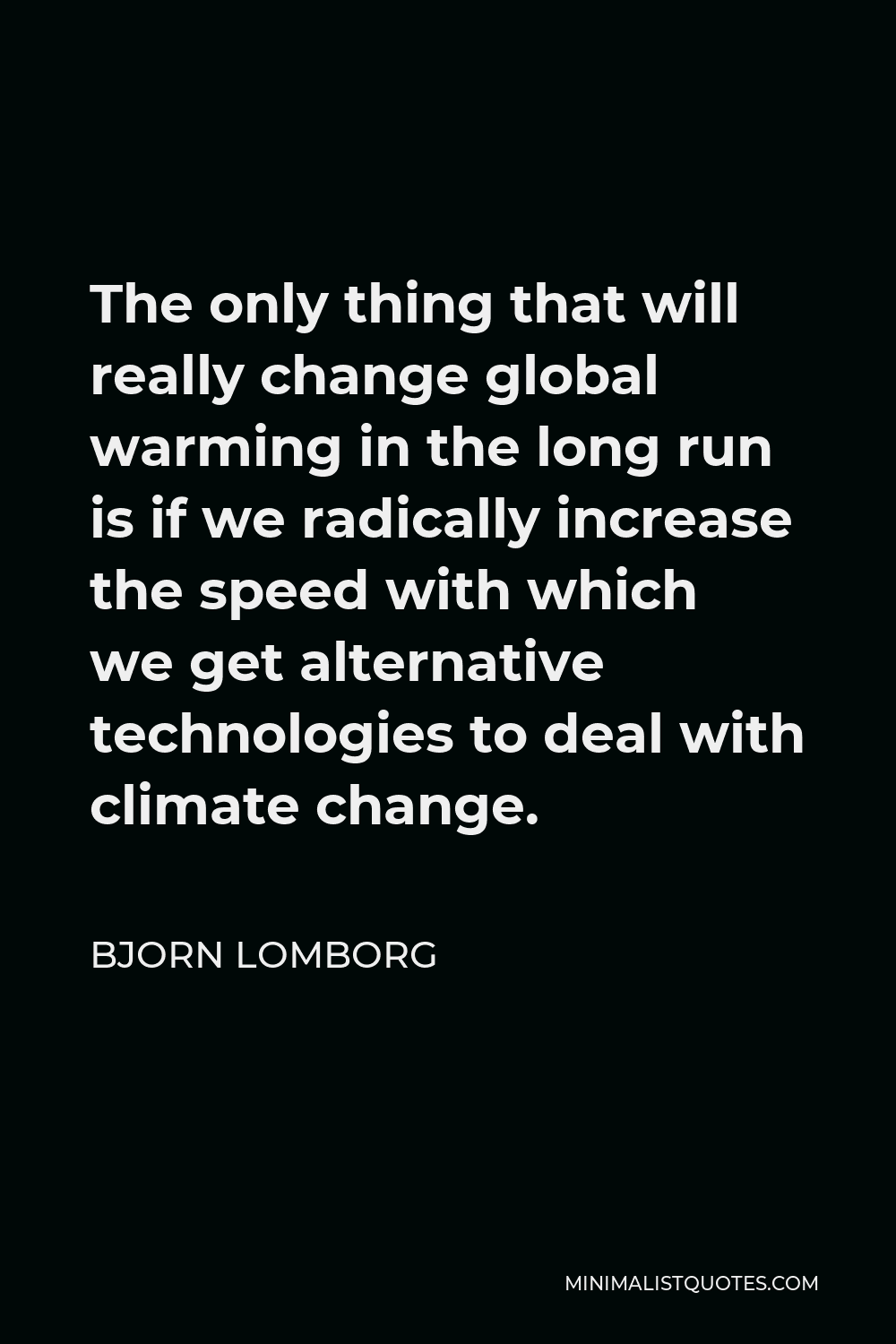
The only thing that will really change global warming in the long run is if we radically increase the speed with which we get alternative technologies to deal with climate change.
BJORN LOMBORG -





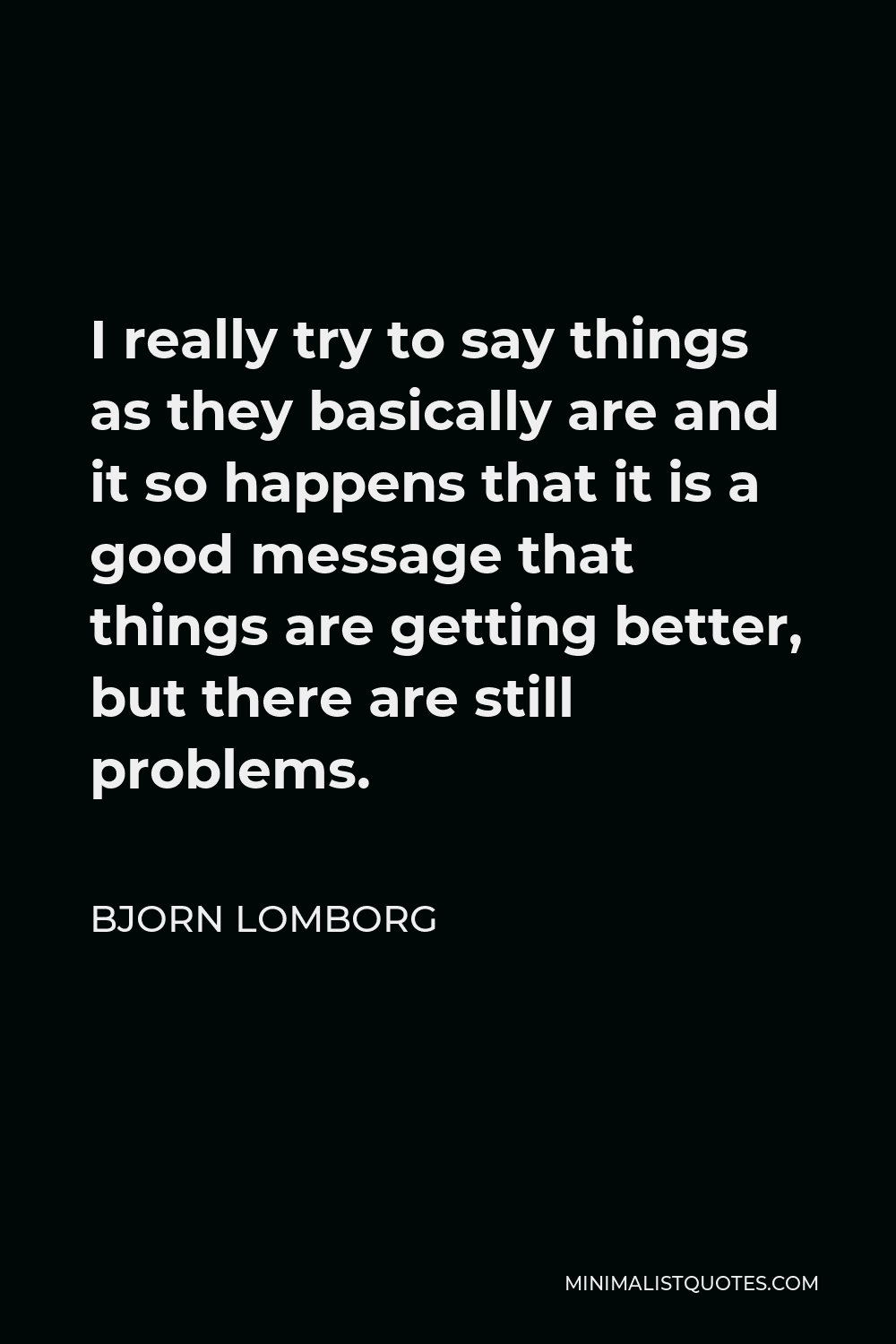
I really try to say things as they basically are and it so happens that it is a good message that things are getting better, but there are still problems.
BJORN LOMBORG -





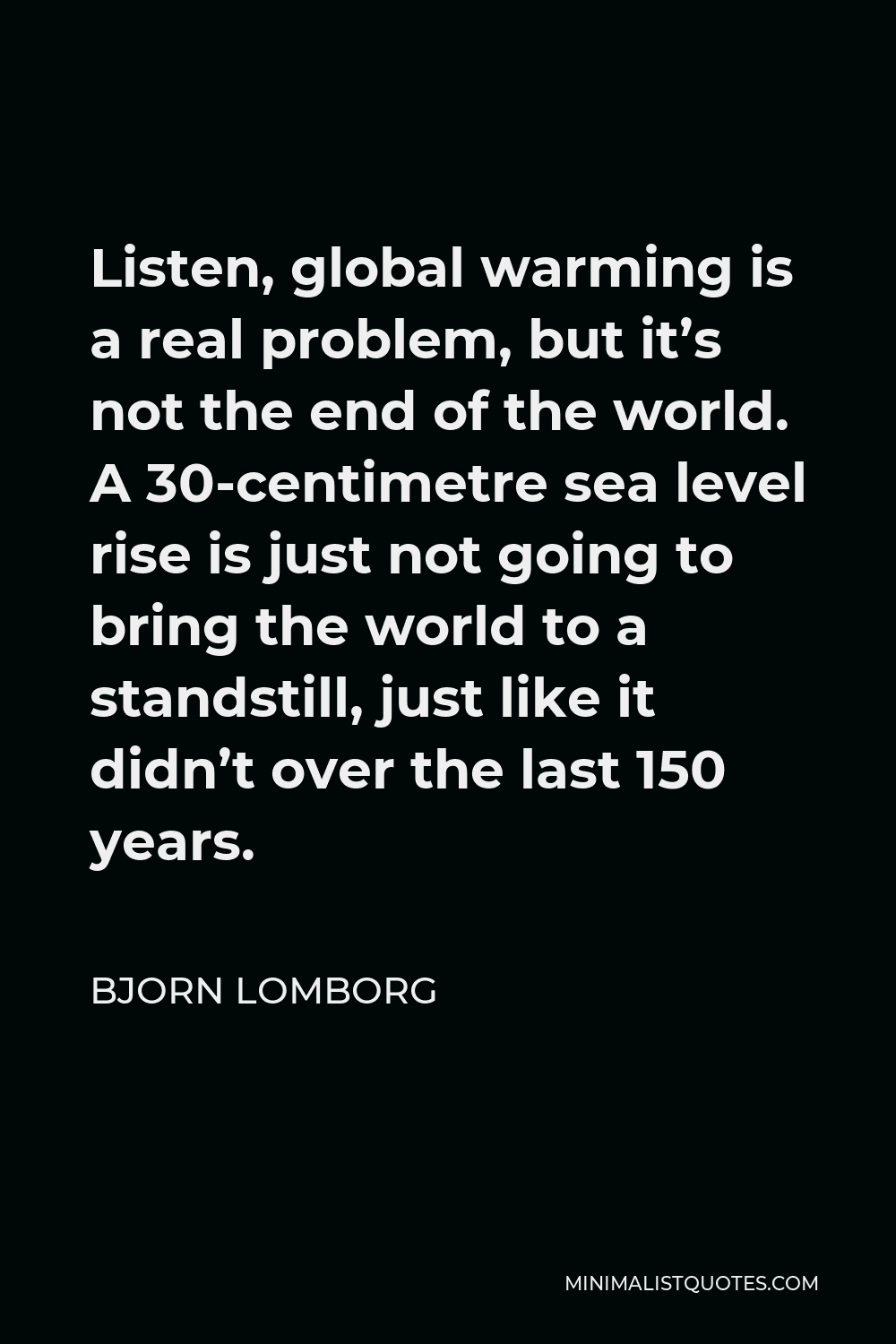
Listen, global warming is a real problem, but it’s not the end of the world. A 30-centimetre sea level rise is just not going to bring the world to a standstill, just like it didn’t over the last 150 years.
BJORN LOMBORG
